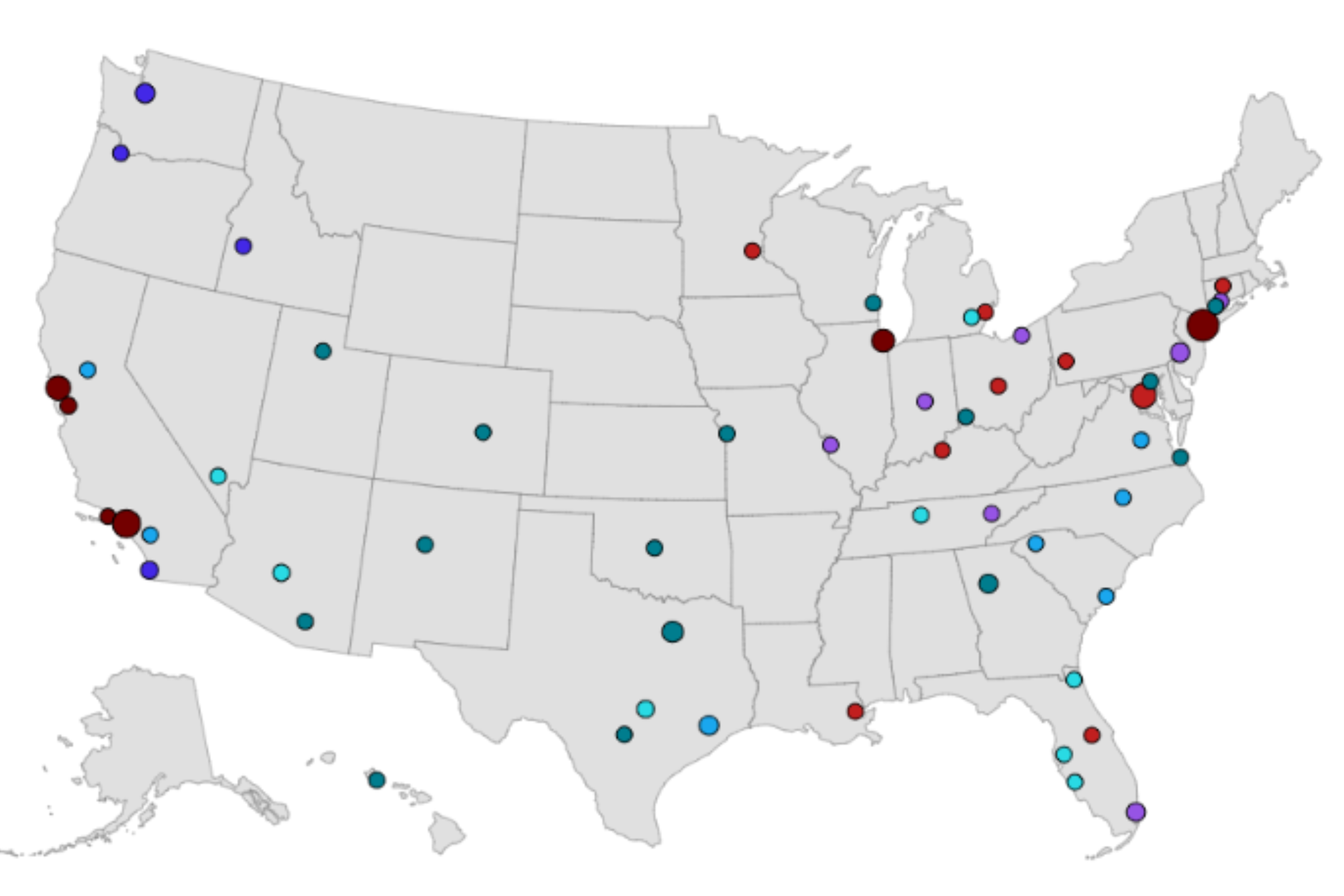The unsettling story of Henrietta Lacks begins with an everyday occurrence: a trip to the doctor's office. The 30-year-old African-American's 1951 diagnosis of cervical cancer would change her life, and the damaged cells taken from her body without permission would alter the course of medical history. At a time when health-care reform is a key concern for the White House and millions of Americans, Lacks's story is a potent reminder of the injustices that were perpetrated by the health-care industry on the poor and uneducated not long ago.
Raised by her grandfather on a tobacco farm in Virginia, Henrietta Lacks was the granddaughter of slaves. She gave birth to her first child at 14 and later married the father of the baby, who happened to be her first cousin—not uncommon at the time. Shortly after Henrietta turned 30, she felt a knot in her lower stomach that she knew meant something was wrong. But with a husband and a house full of kids to take care of, Lacks could ill afford to worry for long; her family also had little money for a doctor's visit, and at the time, many hospitals offered African-American patients substandard treatment.
Months later, after the birth of her fifth child, the knot was still there, so Lacks finally asked her husband to drive her to Johns Hopkins hospital, the only medical facility nearby that saw "colored people" for free. There, the doctors diagnosed Lacks with stage I epidermoid carcinoma of the cervix, which would require her to have radiation treatments a few times a month. During her first two-night stay in the hospital, doctors sliced several pieces of tissue from her cancerous tumor and placed them in a dish in the hopes of growing and studying them. Neither Lacks nor her family gave permission for her cells to be taken.
George Gey, then the head of tissue-culture research at Johns Hopkins, had been trying to grow malignant cells outside the body for nearly three decades, hoping to determine what caused cancer and ultimately how to cure it. Most cells died quickly in the lab, and the few that did survive failed to grow. But Gey was determined to grow the first immortal human cells—a continuously dividing line of cells that all descended from one original sample, cells that would replenish themselves and never die. Lacks's damaged cells turned out to be the answer to his prayers. Her cancer cells grew unlike any the doctor had seen before, doubling in number every 24 hours. Excited by the findings, Gey began to alert his peers that he was sure he'd found the first immortal cells. And then he began sending Lacks's cell culture, named "HeLa" to avoid using Lacks's name, to any scientist who was interested in using it for cancer research. He sent the cells to Texas, India, New York, Amsterdam—anywhere researchers might find them useful.
But neither Gey's excitement nor research helped Henrietta Lacks. Six months after being diagnosed with cancer, she was dead. She was taken back to her hometown of Clover, Va., and buried in a plain wooden box in an unmarked grave. It would be years before her family would realize that her living cells, which survive to this day, had birthed a multimillion-dollar industry selling human biological materials and had contributed to the study of cancer, had helped in developing the polio vaccine, and had allowed scientists to determine the effects of the atom bomb. They also led to important advances in in vitro fertilization, cloning, and gene mapping. HeLa has been bought and sold by millions of researchers in the decades since, likely earning hundreds of millions of dollars for the medical industry. Johns Hopkins maintains it never benefited financially from the sale of the cells.
Neither did the Lacks family. Most of Henrietta's children died with only limited knowledge of what had actually been done with their mother's cells, and today few of her grandchildren or other relatives can even afford to have insurance of their own, according to a new book by Rebecca Skloot, The Immortal Life of Henrietta Lacks.
Some 60 years after doctors committed what today would be an unconscionable violation of medical ethics, there's still only limited information on how often the practice of taking samples without consent was done to patients of poor backgrounds and limited education. But Henrietta Lacks certainly wasn't the only African-American mistreated by the American medical establishment. Books such as Harriet Washington's Medical Apartheid have documented many cases of blatant misuse of medical practices on unknowing and unsuspecting black patients in the name of furthering science and discovering cures.
It might seem as though this kind of disturbing and unethical practice would be limited to another, less-enlightened time, such as the '30s and '40s, which is when the granddaddy of all medical injustices, the infamous Tuskegee syphilis study, began. But some evidence uncovered by Washington's book suggests that black orphan children were used as test subjects as recently as the '80s in New York: tests to determine the effectiveness of some AIDS treatments were given to the children without adult consent.
In a just world, Henrietta Lacks's descendants would have health care given to them free for the rest of their lives, like the victims of the Tuskegee study. But instead her case stands as yet another example of the medical establishment's mistreatment of poor and minority Americans, the aftereffects of which linger to this day.
Uncommon Knowledge
Newsweek is committed to challenging conventional wisdom and finding connections in the search for common ground.
Newsweek is committed to challenging conventional wisdom and finding connections in the search for common ground.
About the writer
To read how Newsweek uses AI as a newsroom tool, Click here.








